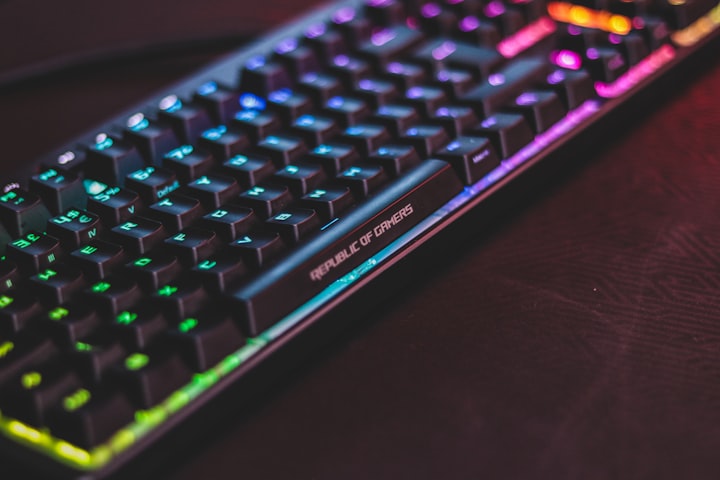Queer Representation in Gaming Matters
Especially when players can choose to be LGBTQ
Representation is vital.
On that, at least, I think most of us can probably agree. Regardless of where in the LGBTQ+ acronym you find yourself, honest and accurate representation of our identities in popular culture is one of the most important ways in which our existence can be normalised in the public consciousness.
How often have you heard phrases like ‘You’re not what I expected a gay person to be like’ or ‘I’ve never met a trans person before’? Lack of visibility allows for our identities to be weaponised against us in the minds of the ignorant. Representation in film and television is an excellent way to combat this.
Representation is vital in gaming too.
Recently I have been playing… actually, I’ve given my soul over to the roguelike masterpiece ‘Hades’ by SuperGiant Games. Having owned the game for just over two weeks, I have already sunk almost 55 hours into it. Some may see this as a comment on my lifestyle, others may see it as a testament to the game (seriously, go try it). Either way, this is not a review, so think what you will.
No, this is not about the game in particular. This is about queerness in video games and why it matters. A lot.
In Hades, you play as Zagreus, Prince of the Underworld and son of the God of the Dead. Great. There’s a bunch of smashing stuff, gods being generally pompous and petulant, and a storyline that grips you and just doesn't let go (55 hours and counting…). There’s also a decent and very well executed smattering of queerness.
When player avatars are LGBTQ+, it puts players, to some small extent, into shoes they may never have worn before.
To begin with, Achilles, a character with whom the player has a lot of dialogue, has a slow and rewarding story arc involving his lost lover, a man who you find in the upper reaches of the underworld and also begin to talk with extensively. The two characters profess their love for each other in beautiful prose time and time again, but they also discuss their relationship in very real and honest terms. The fact they are both men is never referenced, at least not that I have seen, and their relationship is not treated as tokenary or extraordinary. It just… is. It’s fully incorporated into the narrative.
Full incorporation is really important.
Representation at its best is not putting queerness on a pedestal through stereotypes and hyperbole. Good representation that really makes a difference is the kind that normalises LGBTQ+ identities without erasing them. When you are ‘othered’ by society, showing that you are not as different as people think is a good way to combat ignorance and bigotry.
To be clear, I am not saying the LGBTQ+ community should just assimilate quietly. Having pride in your identity and celebrating it wholeheartedly is no bad thing. However, representation in the form of over-played stereotypes is not really representation at all, it’s mockery masquerading as progressiveness. The best representation, therefore, does not have to be quiet and unassuming, but it does have to be realistic.
The protagonist in Hades, Zagreus, is also queer, with romantic storylines being available with both male and female characters in the game. There is an element of choice here, and players can choose to avoid the queer storyline to some extent, but doing so entirely is not easy and is genuinely detrimental to advancement in the game.
In this regard, gaming offers a unique kind of representation — the choice to be queer. Whereas films and TV shows can simply throw LGBTQ+ characters at us and hope that they stick, videogames can humanise queerness by making it an option for the player themselves to actively engage, albeit in a fictional world, in queer identity.
Do I think that bigots will take the queer option?
Probably not, to be honest. But if they are enjoying a game and that option appears, then it might serve to break down some of the hatred they feel. If they like their character or other characters in the game, and they turn out to be LGBTQ+, then queer identities might be more humanised and grounded for that player in terms they can relate to. When player avatars are LGBTQ+, it puts players, to some small extent, into shoes they may never have worn before.
Even if players chose not to follow queer storylines, the fact that their character has shown queerness isn't going anywhere. In the same way that a bisexual woman who only sleeps with men is not straight, a character in a videogame who shows attraction to the same sex doesn't stop being queer when the player steers them towards heteronormative avenues.
People connect with their characters in videogames in a way that can’t really be replicated through other media. Through the building and controlling of an in-game avatar, there is an element of ‘self’ to those characters that allows for representation that hits directly and inescapably. This, I think, stands to make progress against bigotry that other means may be less suited to achieve.
I wonder how many homophobes and bigots have actually stopped playing a game when queerness came onto the scene, compared with those who, however unhappily, continued playing because their enjoyment of the game was more important to them than their prejudices?
Hades, thankfully, is not the only game worth mentioning when discussing this topic, though. A decade ago, Skyrim allowed players to enter into same-sex marriages without any kind of fanfare. The option was there and little to no attention was drawn to it. As a young, closeted gay man, I remember this exciting me greatly as I built an in-game life with my husband and adopted children, in between fighting dragons and bringing low emperors. It was fantastic.
Unfortunately, Skrim was not a perfect product in this regard. Though the player can be queer, as far as I can tell from my 10 years of gameplay, there are almost no other LGBTQ+ characters in the game. Being able to enter into same-sex marriages in-game gives the illusion of an overarchingly progressive fictional world, but there is nothing in the fabric of that world outside of the player to actually substantiate that claim. There are tiny crumbs here and there scattered throughout the lore of Elder Scrolls, but nothing that would be eminently noticeable to the majority of players.
Overwatch, a slightly more recent release, has arguably more prominent representation. Though the style of gameplay doesn't allow for players to form their own relationships and attachments in-game, the literature and lore surrounding the Overwatch world has a few queer beacons in it.
One of the poster-people for the game in its pre-launch and early days was Tracer, a quick-witted, London-accented, Overwatch agent with a propensity for jumping around in time. Not long after the game’s full release, Blizzard Entertainment, the makers of the game, began weaving lore into their fictional world through the use of online comics and occasional videos.
In the tenth of these web-comics, Tracer is seen flashing through the streets of London in a desperate attempt to find a Christmas gift for someone. After a shopping-related saga that was more entertaining than it has any right to be, we discover that the gift is, in fact, for Tracer’s same-sex partner Emily.
The reveal of Tracer’s sexuality was big news, coming with a bigoted backlash, but the fact is that Blizzard themselves didn't make a big deal of it. The approach was very matter-of-fact, showing the couple like any other in a kind of representation that was almost completely devoid of stereotypes or cliches, at least from what I saw.
Since then, another character — Soldier 76 — has also been revealed as being LGBTQ+. Again, the approach was subtle, without a big song and dance, although this time it was much later into the life of Overwatch, two years after Tracer’s story. The backlash, in this case, was added to by complaints from queer commentators, arguing that the reveal felt like an afterthought, a trait being added to one of the most recognisable Overwatch character’s AFTER they had already been pretty well-rounded.
I can see that. Adding queerness as an afterthought is not ideal, and when it's poorly executed it can actually be quite insulting. In this particular case, it's hard to tell if that's what happening. Blizzard are known for playing the long-game, after all, so this could have been planned from the start.
Either way, just like in Hades and Skyrim, Overwatch allows players to inhabit queer characters, should they so choose. In Overwatch, like in Hades, queerness is actually pretty hard to avoid if you want to play the game. Aside from the fact that there are game modes where you have no control over your character, Tracer and Soldier 76 are two of the first heroes you learn to play with when beginning your Overwatch journey. Blizzard, it seems, are happy to be slightly coercive in forcing players to deal with these characters, whether they like it or not.
In the end, videogames provide a kind of representation that is really hard to replicate elsewhere. By creating well-formed and realistic LGBTQ+ characters in games, players are forced to reflect on whether their desire to play outweighs their prejudices. In the case of queer controllable avatars, players are put into positions where they might well form attachments to characters who they might otherwise shun.
Do I think that videogames are going to singlehandedly solve anti-LGBTQ+ bigotry? No, of course not. Do I think that all bigots who play games with good queer representation will be positively influenced by them? Unfortunately not, no. But I do think that some will.
Games matter to players, many connect with them on an emotional level and care about the worlds they inhabit and the characters in those worlds. I genuinely believe that if those worlds can be representative and inclusive, examples of what our own world could be like, it might just make a difference. I hope it does.
Now, if you’ll excuse me, that 55 hours won’t increase itself.
About the Creator
Sean Bennett
Writer, producer, editor and all-round curious so and so. Writing about politics, being queer, and anything else that springs to mind! (He/Him) Get in touch at - [email protected]







Comments
There are no comments for this story
Be the first to respond and start the conversation.